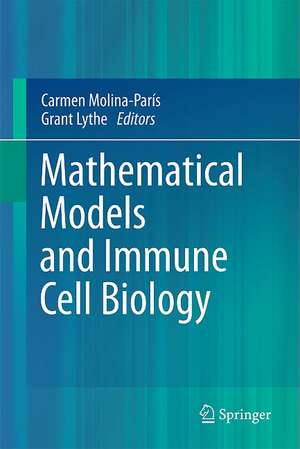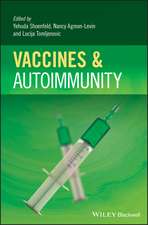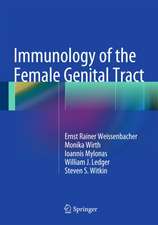Mathematical Models and Immune Cell Biology
Editat de Carmen Molina-París, Grant Lytheen Limba Engleză Hardback – 5 mai 2011
| Toate formatele și edițiile | Preț | Express |
|---|---|---|
| Paperback (1) | 1479.75 lei 6-8 săpt. | |
| Springer – 9 oct 2014 | 1479.75 lei 6-8 săpt. | |
| Hardback (1) | 1422.14 lei 6-8 săpt. | |
| Springer – 5 mai 2011 | 1422.14 lei 6-8 săpt. |
Preț: 1422.14 lei
Preț vechi: 1496.99 lei
-5% Nou
Puncte Express: 2133
Preț estimativ în valută:
272.21€ • 295.78$ • 228.81£
272.21€ • 295.78$ • 228.81£
Carte tipărită la comandă
Livrare economică 21 aprilie-05 mai
Preluare comenzi: 021 569.72.76
Specificații
ISBN-13: 9781441977243
ISBN-10: 1441977244
Pagini: 424
Ilustrații: XVI, 407 p.
Dimensiuni: 155 x 235 x 28 mm
Greutate: 0.73 kg
Ediția:2011
Editura: Springer
Colecția Springer
Locul publicării:New York, NY, United States
ISBN-10: 1441977244
Pagini: 424
Ilustrații: XVI, 407 p.
Dimensiuni: 155 x 235 x 28 mm
Greutate: 0.73 kg
Ediția:2011
Editura: Springer
Colecția Springer
Locul publicării:New York, NY, United States
Public țintă
ResearchCuprins
Preface.- Thymocyte development.- A review of mathematical models for T cell receptor triggering and antigen discrimination.- Dynamic tuning of T cell receptor specificity by co-receptors and costimulation.- T cell activation and function: role of signal strength.- The cyton model for lymphocyte proliferation and differentiation.- Modeling itravital two-photon data of lymphocyte migration and interaction.- Modeling lymphocyte dynamics in vivo.- Continuous-time birth and death processes: diversity maintenance of naïve T cells in the periphery.- Multivariate competition processes: a model for two competing T cell clonotypes.- Stochastic modeling of T Cell homeostasis for two competing clonotypes via the master equation.- Dendritic cell migration in the intestinal tract.- Reassessing germinal center reaction concepts.- B cell strategies of Ag recognition in a stratified immune system.- Dynamics of Peripheral regulatory and effector T cells competing for antigen presenting cells.- Mathematical models of the role of IL-2 in the interactions between helper and regulstory CD4+ T cells.- A Physicist’s approach to immunology.- Timescales of the adaptive immune response.- Using mathematical models to explore the role of cytoxic T lymphocytes in HIV infection.- Viral immunity and persistence.- Index.
Textul de pe ultima copertă
Mathematical immunology is in a period of rapid expansion and excitement. At recent meetings, a common language and research direction has emerged amongst a world-class group of scientists and mathematicians. Mathematical Models and Immune Cell Biology aims to communicate these new ideas to a wider audience. The reader will be exposed to a variety of tools and methods that go hand-in-hand with the immunological processes being modeled. This volume contains chapters, written by immunologists and mathematicians, on thymocytes, on T cell interactions, activation, proliferation and homeostasis, as well as on dendritic cells, B cells and germinal centers. Chapters are devoted to measurement and imaging methods and to HIV and viral infections.
Caracteristici
Contains chapters on mathematical modelling, on immunology, and on mathematical modelling in immunology
Reader will also find chapters on dendritic cells, B cells and germinal centers
Contains a list of abbreviations to help indicate the type of research that is being carried out
Includes supplementary material: sn.pub/extras
Reader will also find chapters on dendritic cells, B cells and germinal centers
Contains a list of abbreviations to help indicate the type of research that is being carried out
Includes supplementary material: sn.pub/extras












